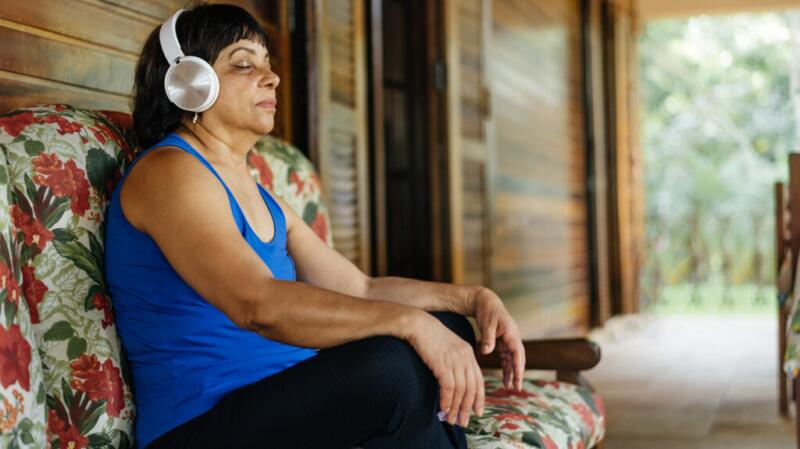When anxiety becomes chronic, however, it can be detrimental. Chronic anxiety has a significant effect on society in the United States. In fact, anxiety disorders rank as the most common mental health problem in the U.S. Whether you deal with day-to-day worries or longer lasting anxiety, there are steps you can take to calm anxiety, anxiety at night, and anxiety attacks.
1. Practice relaxation techniques
Managing stress is important for both everyday anxiety and anxiety disorders. Relaxation techniques
Relaxation techniques can be as simple as breathing exercises or guided imagery. The NCCIH also lists more advanced approaches, such as biofeedback-assisted relaxation. The key to preventing anxiety and controlling it when it occurs is to practice these techniques when you are not anxious.
2. Get a massage
We are all different. So, what works to reduce stress for one person may not work for another. Massage therapy is one way to potentially manage stress.
Massage can be relaxing and can promote wellness. An NCCIH summary of
3. Meditate in a quiet location
Meditation and mindfulness can promote calmness. These techniques focus attention away from stress and anxiety and lead to relaxation. There are many different ways to practice meditation or mindfulness. Some ways, such as yoga, also include a physical component.
Learn how to start meditating and get tips for your first session.
4. Listen to music during stressful situations
Listening to music can be a way to destress and decompress. There is

5. Join a support group
Support groups are communities for sharing common problems, coping tips, and successes. There are groups for just about every situation and condition.
You can find a support group online or join one that meets in person. Both the American Psychiatric Association (APA) and the
6. Take a brisk 10-minute walk
Exercise is an important part of physical health, but it has mental health benefits too. The APA explains that physical activity increases the level of norepinephrine, a chemical that helps the brain’s stress response.
Aerobic exercise also increases the level of
The effects of exercise kick in quickly — it only takes about 5 minutes of aerobic activity for anxiety-relieving benefits to start. You do not have to commit to hours of exercise for it to help. However, a pattern of regular exercise will provide sustained benefits, including elevated mood.
7. Pay attention to your diet
Scientists know there is a relationship between a healthy mind and a healthy body. So, if your body feels good, your mind is likely to feel good.
Along with exercise, proper nutrition plays a vital role in physical health. This can translate to overall better mental health. Specifically, the APA recommends avoiding caffeine, which can worsen stress and anxiety. Other tips include not skipping meals, eating well-balanced meals, and limiting or avoiding alcohol.
8. Talk with your doctor about your sleep
Anxiety and sleep problems are closely related. One can lead to the other. So, getting adequate rest each night is an important part of coping with anxiety.
However, anxiety at night can make it hard to get restful sleep. Talk with your doctor if you have trouble getting to sleep or staying asleep until morning. Learning about proper sleep hygiene and practicing it each night can go a long way toward relieving anxiety. In some cases, using medications temporarily may be helpful.
Long-term treatment for anxiety and stress
Anxiety disorders occur when anxiety
The most effective treatment is a combination of cognitive behavioral therapy (CBT) and medication. The medications will not cure anxiety. Instead, they work to relieve symptoms, while CBT addresses the root of the problem. The goal is to gain long-term control of anxiety through CBT.
When doctors prescribe medications for chronic anxiety, they generally choose from two classes: anxiolytics and antidepressants. Anxiolytics, such as benzodiazepines, are for short-term symptom relief. They can reduce panic and worry quickly while other treatments take effect. Antidepressants provide longer lasting symptom relief but can take some time to start working.
A lot of people in the U.S. experience anxiety. For many, anxiety is not debilitating. When this is the case, self-care and lifestyle changes are often successful in managing daily stresses. However, chronic anxiety that disrupts your life is different. While lifestyle habits can help, this kind of anxiety requires more in-depth treatment.







